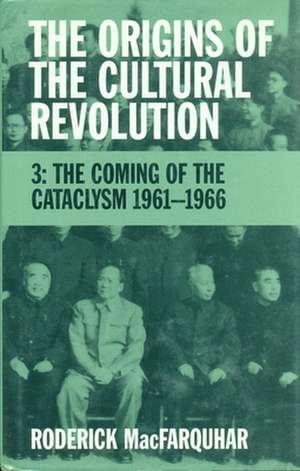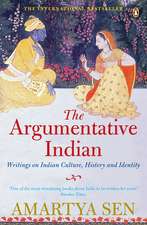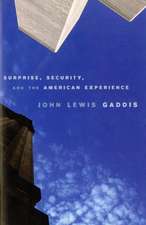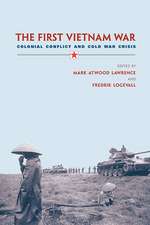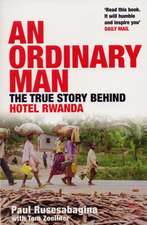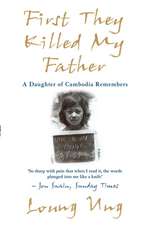The Origins of the Cultural Revolution: The Coming of the Cataclysm 1961-1966: Studies of the East Asian Institute (Columbia Paperback)
Autor Roderick MacFarquharen Limba Engleză Paperback – 31 oct 1999 – vârsta de la 22 ani
This is the final volume in a trilogy that examines the politics, personalities, economics, culture, and international relations of China from the mid-1950s to the mid-1960s. It seeks to answer the central question: Why did Chairman Mao Zedong launch the Cultural Revolution (1966-76), which plunged China into chaos and almost destroyed its Communist Party?
"The Coming of the Cataclysm" starts with the great famine of the early 1960s, which resulted in tens of millions of deaths and set in train a series of emergency measures that increasingly divided Mao from his comrades-in-arms. His anger that they were prepared to adopt "capitalist" methods to rescue the country was sharpened by his belief that Moscow had actually gone capitalist and sold out to the "imperialist" West. From 1961 to 1966, the period covered by this volume, the increasingly urgent question for Mao was how to prevent a similar revolutionary degeneration in China. The Cultural Revolution was his answer.
Drawing upon new evidence from Party documents, personal interviews, books, and journals, MacFarquhar details the growing rift between Mao and his colleagues as they attempted to cope with domestic privation and an increasingly hostile international environment--until the Chairman finally decided to smash the unity of the Yan'an Round Table by unleashing society against the party-state.
| Toate formatele și edițiile | Preț | Express |
|---|---|---|
| Paperback (1) | 487.44 lei 6-8 săpt. | |
| Columbia University Press – 31 oct 1999 | 487.44 lei 6-8 săpt. | |
| Hardback (1) | 636.98 lei 31-38 zile | |
| OUP OXFORD – oct 1997 | 636.98 lei 31-38 zile |
Preț: 487.44 lei
Nou
93.27€ • 99.74$ • 77.77£
Carte tipărită la comandă
Livrare economică 18 aprilie-02 mai
Specificații
ISBN-10: 0231110839
Pagini: 480
Dimensiuni: 141 x 215 x 40 mm
Greutate: 0.93 kg
Editura: Columbia University Press
Seria Studies of the East Asian Institute (Columbia Paperback)
Descriere
This is the final volume in a trilogy which examines the politics, personalities, economics, culture, and international relations of China from the mid-1950s to the mid-1960s. Roderick MacFarquhar is the first to use a multitude of new Chinese sources to answer the question: Why did Chairman Mao Zedong launch the Cultural Revolution which plunged China into chaos and almost destroyed its Communist Party? Volume 3 begins with the great famine of the early 1960s which resulted in tens of millions of deaths, setting in train a series of emergency measures which increasingly divided Mao from his comrades-in-arms. The Chairman's anger that they were prepared to adopt `capitalist' methods to rescue the country was sharpened by his belief that Moscow was denouncing his revolutionary diplomacy because the Soviet leadership had gone capitalist and sold out to the `imperialist' West. From 1961 to 1966, the increasingly urgent question for Mao was how to prevent a similar revolutionary deterioration in China. The Cultural Revolution, in which tens of thousands of loyal party veterans were publicly disgraced to make way for a supposedly more leftist generation of Red Guards, was his answer. Ironically, after it all ended with Mao's death, one survivor, Deng Xiaoping, was so appalled at the destructiveness of the Chairman's final cataclysm that he actually did turn to capitalism to revive the country. This volume is the first scholarly work for twenty years to focus on the whole gamut of events - political, economic, intellectual, military, and international - in the years leading up to the Cultural Revolution and makes use of a multitude of Chinese documentary, biographical, and historical works that have only appeared in the last decade.
Recenzii
This third massive volume completes what is perhaps the most ambitious effort yet undertaken to unravel why and how this great and confusing event came about. Despite the enormous amount of information MAcFarquhar has unearthed, much of it new, he is unable to shed light on the psychology of the leaders. As MacFarquhar makes clear, many terrible things which came to the attention of the world during the Cultural Revolution had started long before.
MacFarquhar's narrative is unflaggingly exciting... His character-drawing is convincing; dramatic turning-points are made the most of; the material factors are firmly grasped... the concluding volume of a trilogy designed to chart the background of the Cultural Revolution. It has had the great advantage... of being able to make use of a flood of new or newly accessible informaqtion from Chinese sources.
